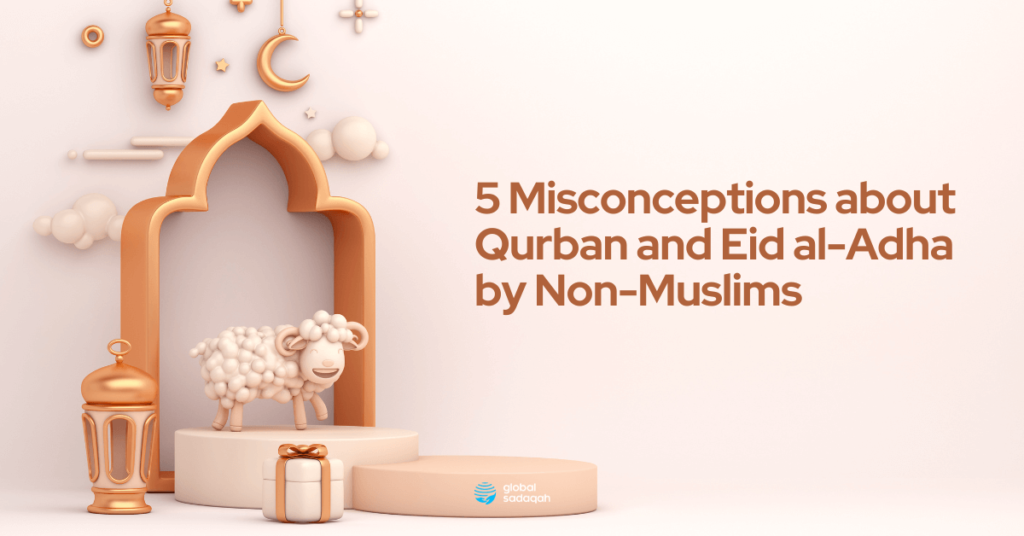Stereotypes of the Muslim world are on rampant globally, that many have come to question and in some circumstances, have come to their own conclusions about Islam and its teachings. When discussing animal welfare, this tendency among non-Muslims to think that Muslims are ‘barbaric’ is on the rise especially when one of most celebrated Islamic celebrations, Eid-Adha approaches! Look, they slaughter innocent animals, one might think.
Related : Eid al-Adha: How is it Different from Eid al-Fitr?
To put everyone at ease, let us begin by addressing the issue that is perhaps one of the major objections that people of conscious have toward Islam — the ritual slaughter of animals and the significant of Islamic celebration, Eid al-Adha. Let’s take a look at five misconceptions about Qurban and Eid al-Adha by Non-Muslims :
1.It is obligatory that ALL Muslims to perform the act of slaughtering
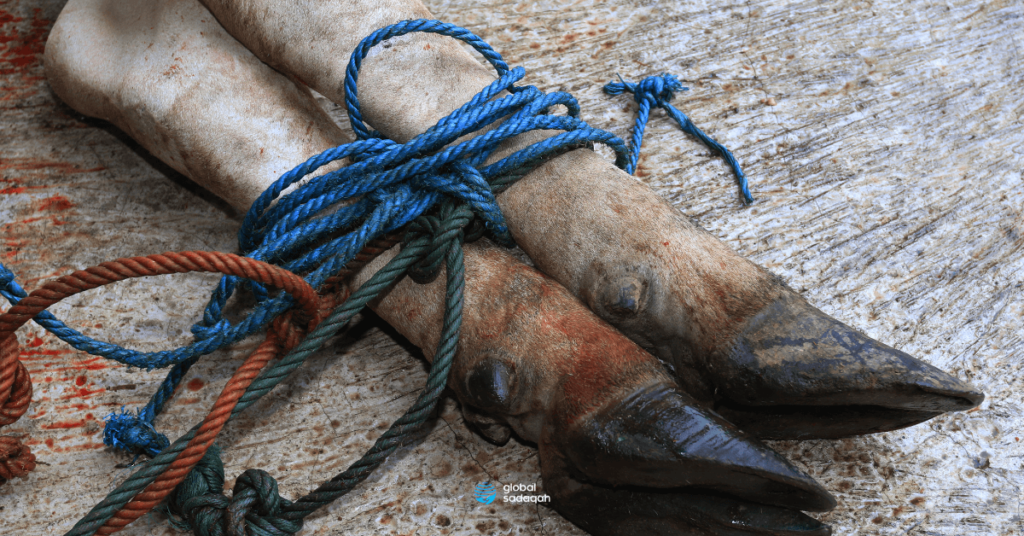
Some non-Muslims wrongly believe that all muslims must slaughter the animals with their own hands during the qurban rituals. Well, the truth is that the act of slaughtering by the person intending to offer the sacrifice itself is not obligatory but it is highly recommended.The Prophet ((ﷺ), did his own slaughter of the animals that he had chosen. So this is preferred. If one does not slaughter the animals themselves, then it is advisable that one be present during the slaughter. Most people today, prefer sending their qurban out to needy places instead where the slaughter is carried out under a registered or relevant organisation and then distributed to the poor and needy families.
You may find local farms or any online platforms such GlobalSadaqah that offer to perform the slaughtering on your behalf and send you as well as distribute the meat for you afterwards.
.
Related : 5 Things You Need to Know about Qurban (Korban/Udhiyah) Abroad
2. Eid al-Adha is the same as Eid al-Fitr
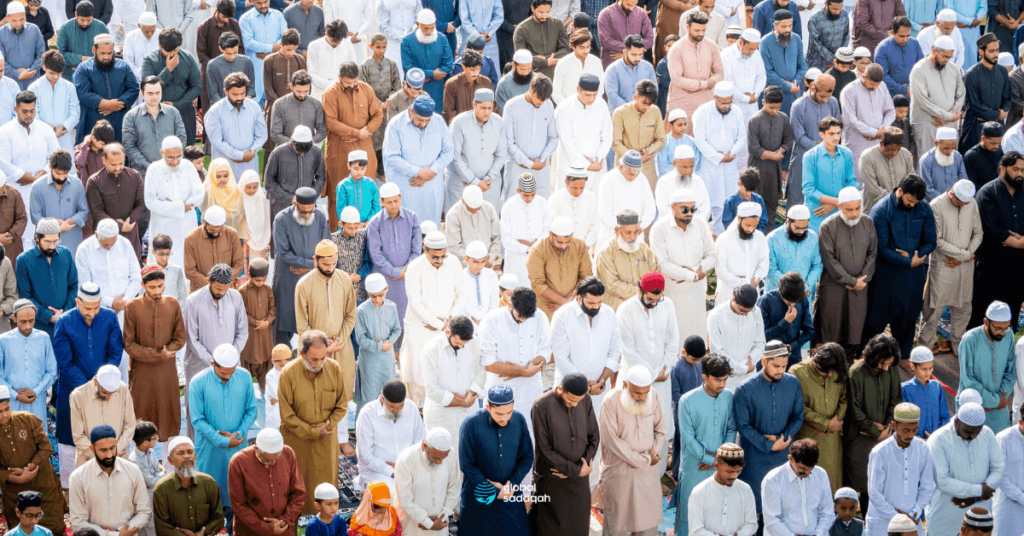
Sorry to burst your bubbles but no, these are two different celebrations during the Islamic year.
Eid al-Fitr marks the end of the Islamic fasting month of Ramadan, meanwhile, Eid al-Adha commemorates the hajj or pilgrimage to Makkah, which all Muslims are expected to perform at least once in their lifetimes.
The festival also honours the legacy of Prophet Ibrahim, who was willing to sacrifice his son Ismail as a test of faith. At the last moment, Allah intervened by sending a ram to be sacrificed in place of Ibrahim’s son. This was done to recognise Ibrahim’s faith, and also to remind Muslims that ritual sacrifice of humans in Allah’s name is forbidden in Islam.
3. It is wajib to perform qurban (sacrifice) rituals to honour the deceased
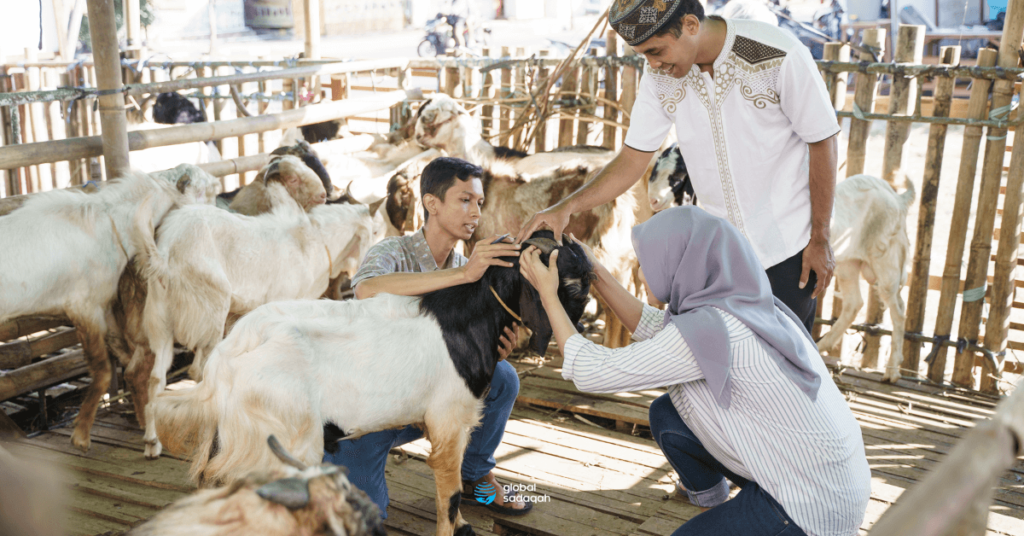
The obligation of performing qurban for the deceased is another misconception by many. Many people mention it in their wills.
The Prophet’s wives did not perform sacrifices for the Prophet after his death. It has been reported the Ali b Abi Talib used to do so on behalf of the Prophet after he passed away. Imam An-Nawawi said, “As regards offering a sacrifice on behalf of the deceased, Abu Hassan Al-Ebbadi considered it permissible because it is a kind of charity and charity on behalf of the deceased is valid and avails him.” [Al-Majmu’]
Imam Ibn Taymiyyah said, “Whoever claims that the deceased do not benefit from the good actions of others has indeed breached the Ijmah.” He was asked regarding the validity of offering sacrifice for the deceased. He responded by saying that it is allowed to sacrifice on their behalf just as it is valid to perform hajj on his (deceased) behalf.
Based on the above points, to slaughter on behalf of the dead is permissible, but it cannot be termed as a Sunnah necessarily and it is definitely not an obligation. It can be done to gain more pahala or rewards.
4. Eid al-Adha is about the Hajj, so only pilgrims celebrate it
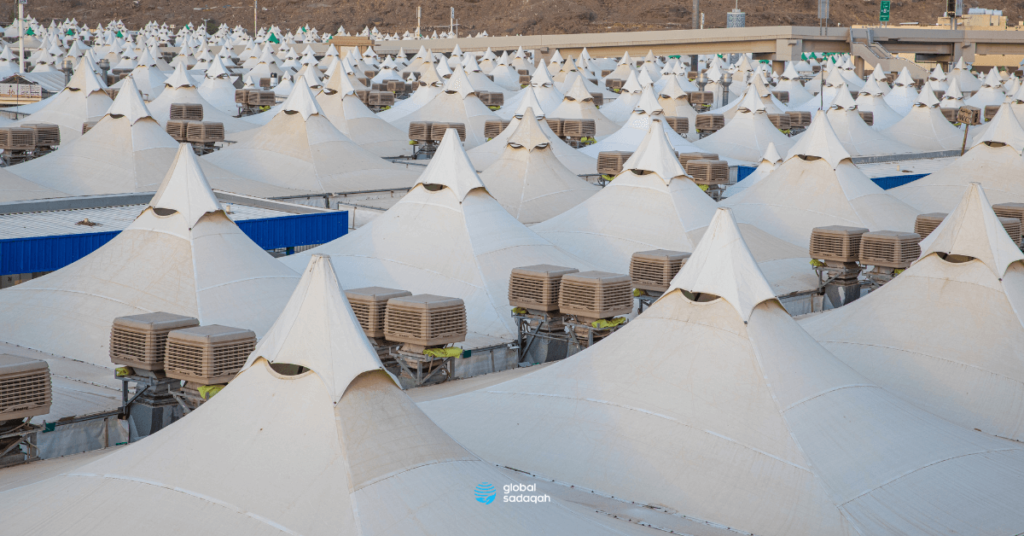
Seriously, does it mean that only Muslims who have completed or who are completing the Hajj this year are involved? No, this is not the case because all Muslims celebrate this special day!
In the morning, Muslims go to the mosque for Eid prayers, and listen to a special khutbah (sermon) afterwards. Then the qurban (ritual sacrifice) is performed. After the sacrifice is completed, the qurbani meat will be distributed and collected. Muslims will catch up with friends and family with gifts being exchanged. It is one of the greatest days of celebration for Muslims around the world.
5. The animals slaughtered during the Qurban are tortured to death
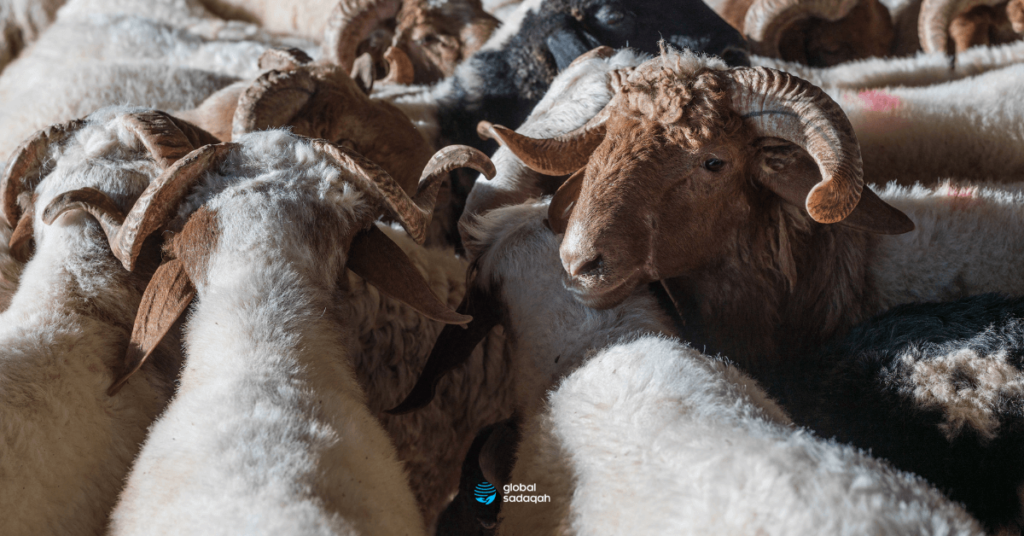
Of course not. In fact, the prescribed method of slaughter is actually one of the quickest and most humane ways to end an animal’s life. The Islamic method of slaughtering dictates that both the animal’s esophagus and trachea be cut, but not beheaded.
Cutting both of the tracts will ensure that the carotid artery and jugular vein will be severed. This will result in sudden loss of copious amounts of blood from the brain and the heart. The sudden loss of blood from the brain will cause it to shut down almost immediately, ensuring faster and almost painless death.
There are adab to be followed even while slaughtering an animal:
- It should not be made uncomfortable or caused to freak out.
- It should not be slaughtered where the animals can see it being slaughtered.
- It should not be slaughtered in front of its family.
- It should be fed, watered, and taken care of properly.
- The knife should be sharpened to the maximum.
- Everything that can be done for the animal to make it easy and painless should be done and anything that causes distress to the animal should be avoided.
Most importantly, Qurban is a spiritual action for Muslims around the world and we see it as a chance to draw closer to Allah! For your better understanding of this holy ritual, you can read more about the history of Qurban here on Global Sadaqah.
Related : Your Guide to Qurbani 2022
On the same platform too, GlobalSadaqah has charity partners across multiple countries that have an on-ground team that will take care of the entire process of Qurban.
